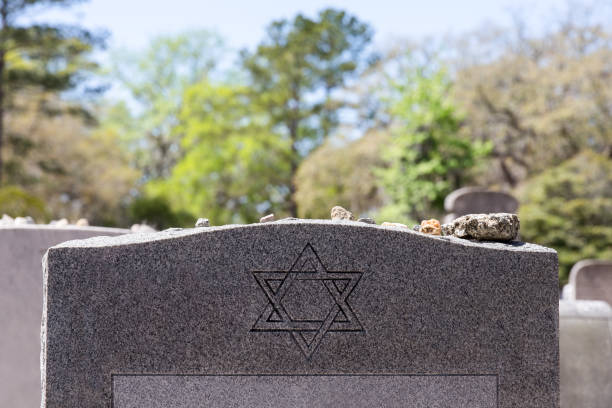Jewish tradition is rich in symbolism, and one of the most common practices in Jewish cemeteries is the placing of stones on graves. Visitors to Jewish cemeteries often notice that the graves are adorned with small stones, pebbles or rocks, and may wonder why this practice is so widespread.
There are several reasons why Jews place stones on graves, and each reason is rooted in Jewish tradition and customs.

- Warning To Kohanim (Jewish Priests)
One reason for placing stones on Jewish graves is based on the Jewish tradition that Kohanim, or Jewish priests, are prohibited from coming into contact with dead bodies. The Kohanim are seen as particularly holy, and their role as intermediaries between God and the people requires them to maintain a high level of purity. In Jewish cemeteries, therefore, stones are placed on graves as a warning to Kohanim that they should not approach the graves, which could potentially cause them to become impure. - To Keep the Soul in This World
Another reason for placing stones on graves is connected to the Jewish belief in the afterlife. According to Jewish tradition, the soul of the deceased remains connected to the body for a short period of time after death, before moving on to the afterlife. Placing stones on the grave is believed to help anchor the soul to the physical world for a little longer, allowing it to process the events of life and come to terms with its own mortality. - Stones Last Longer Than Flowers
A third reason for placing stones on graves is more practical than symbolic. Flowers are often placed on graves as a sign of respect and remembrance, but flowers wither and die relatively quickly. Stones, on the other hand, last much longer and can serve as a more permanent memorial. Placing stones on a grave is a way of ensuring that the memory of the deceased is preserved over time. - A Hebrew Pun
Finally, the practice of placing stones on graves is connected to a Hebrew pun. In Hebrew, the word for “pebble” or “stone” is “even.” The Hebrew word for “witness” is “ed.” These two words are homophones, meaning they sound the same but have different meanings. The practice of placing stones on graves, therefore, is seen as a way of bearing witness to the deceased and their life, as well as to remind those who visit the grave of the importance of bearing witness to the events and people in our own lives.
In conclusion, the tradition of placing stones on Jewish graves is rooted in Jewish customs and beliefs, and serves as a reminder of the importance of memory and connection. Whether as a warning to Kohanim, a way of anchoring the soul to the physical world, a more permanent memorial, or a way of bearing witness to the deceased, this practice serves as a poignant and meaningful way to honor the memory of those who have passed on.
similar articles:
